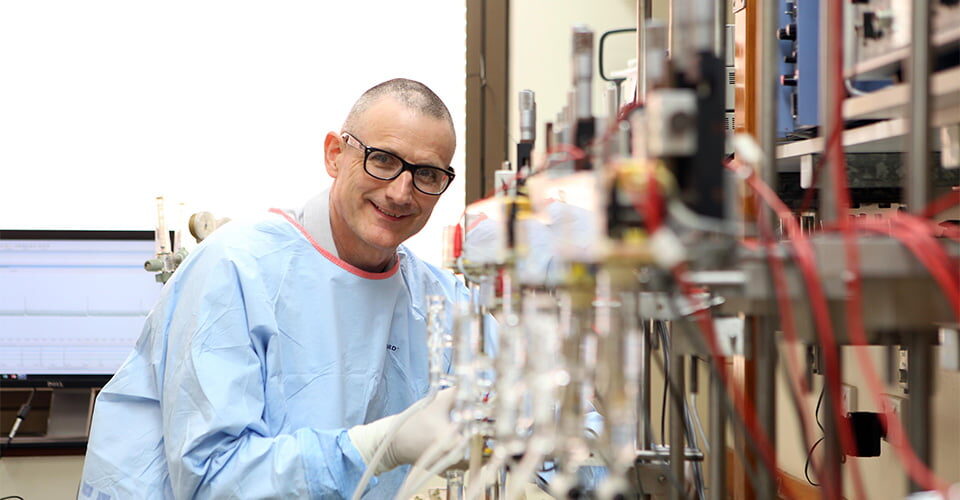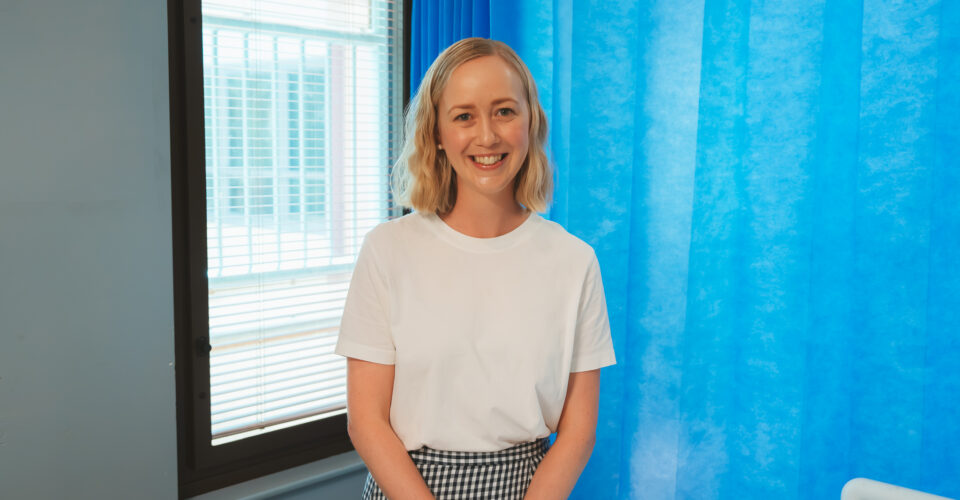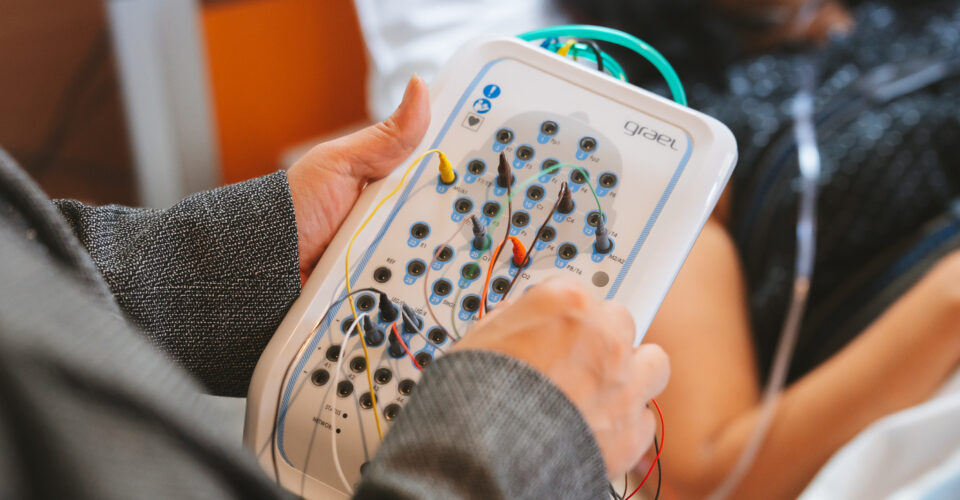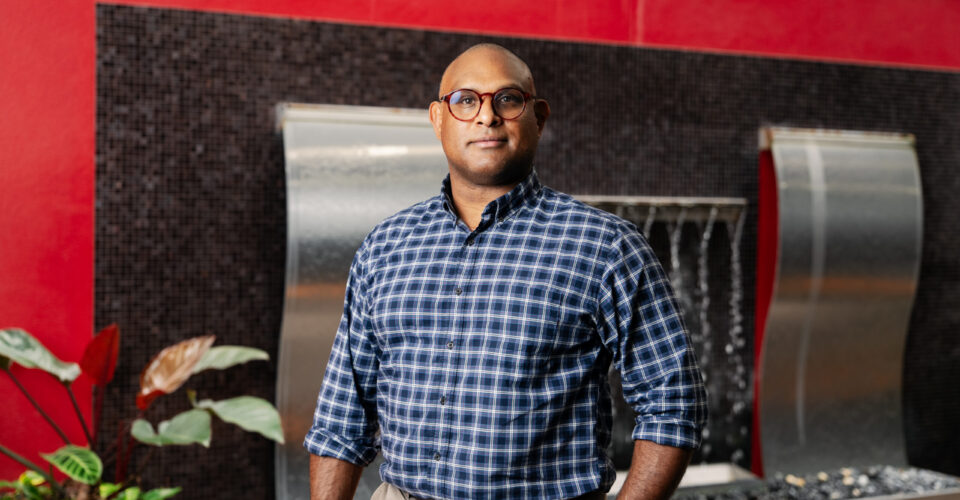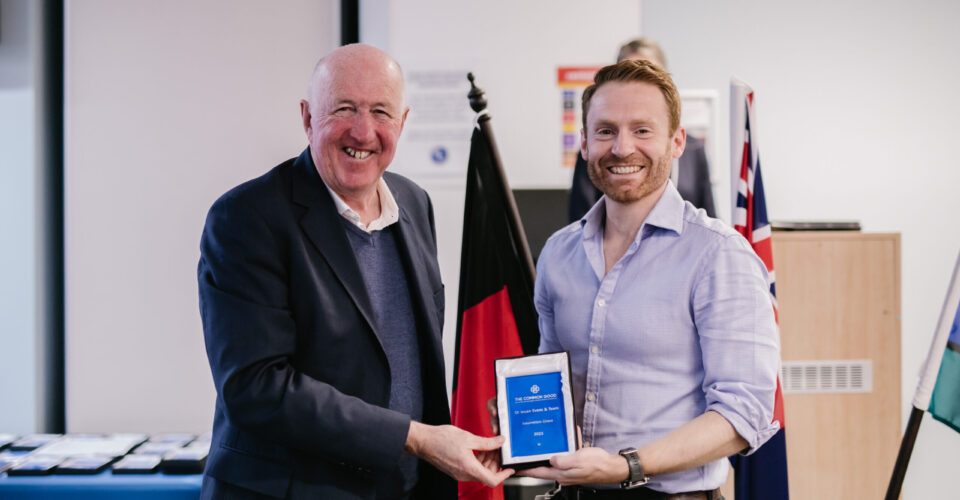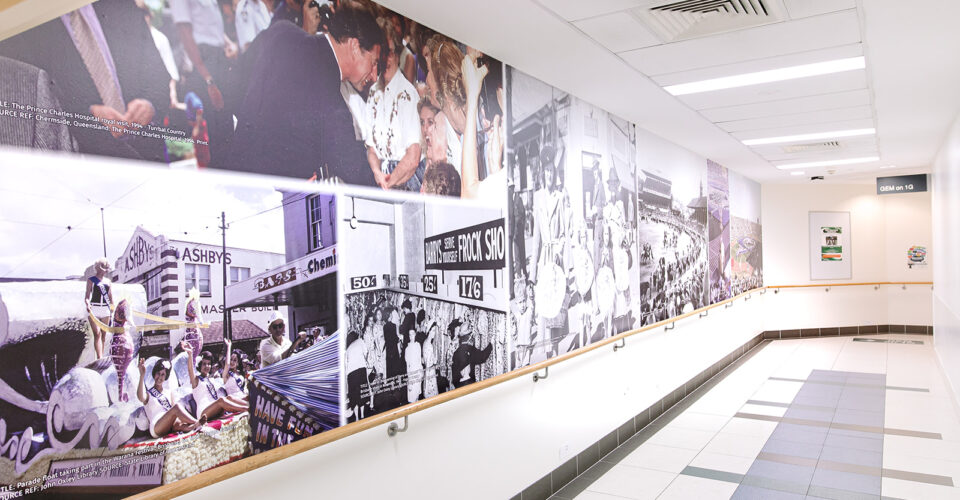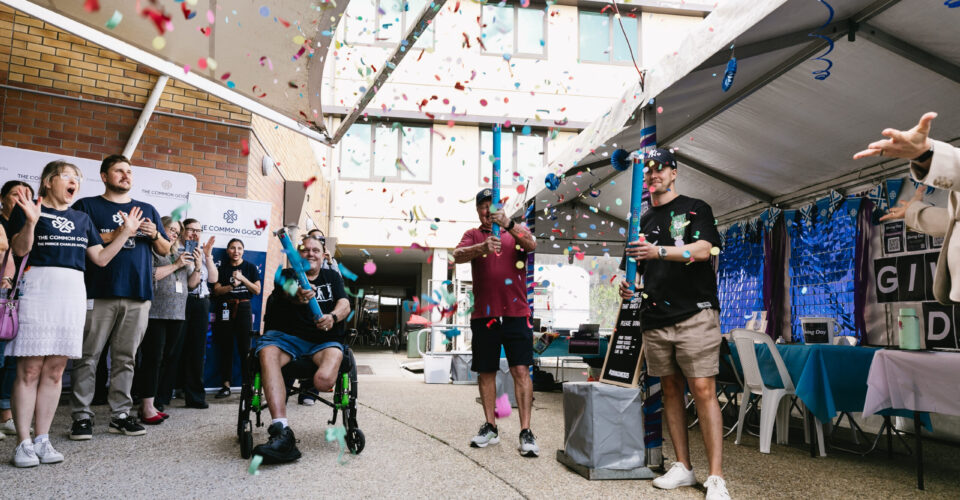Walking into Associate Professor Molenaar’s lab, you feel as if you’ve crossed into a unique and exciting dimension of science. Pipes and pumps, tanks filled with water at precisely 37 degrees Celsius to replicate the conditions of the human body, bubbling tubes criss-crossing one another—It’s an intriguing sight.
Perhaps most remarkable, are the small, glass vials holding tiny tissue samples from explanted hearts—contracting and relaxing through a simulated, electrical impulse—mimicking a human heartbeat while being tested with various life-saving drugs. But the lab holds far more than just these experiments. It encompasses a long and rich history of research, collaboration and commitment spanning over more than two decades. It is through your support, that Peter and his team have been able to continue their important research.
What is Peter Molenaar’s heart research about?
20 years ago, Peter relocated his laboratory to The Prince Charles Hospital to further support heart research. It provided the opportunity to work with both cardiology and surgical programs all under one roof—a factor that meant he could transport the precious heart tissue samples collected in surgery directly back to his laboratory on the same site as the hospital.
Since then, Peter has dedicated his life to the identification of new drug targets to prevent people who have heart disease dying from sudden cardiac arrests. At the moment, it is a very exciting time to be working in the laboratory:
“We believe we are on the cusp of a breakthrough and are working to find a solution to significantly increase the survivability of the disease. There are currently no drugs that are effective in preventing sudden cardiac death, but we are working on a number of medicines that have not been thought of before or implemented. We want to test them,” Peter explains.
Without the generous support of people like you, Peter says his research team wouldn’t exist, “We are incredibly grateful. Donations through The Common Good have really been the glue to keep the laboratory alive.
“We know the importance of public donations and making it go as far as we can, really get to outcomes which is the most important. At the end of the day, our research will mean something to the patients and people who provided money for us.”
The next step in Peter’s research is to test new medicines on hearts that are at risk for sudden cardiac death.
Help keep the research alive—donate now so that Peter and his team can keep working to tackle Australia’s biggest killer, heart disease.
